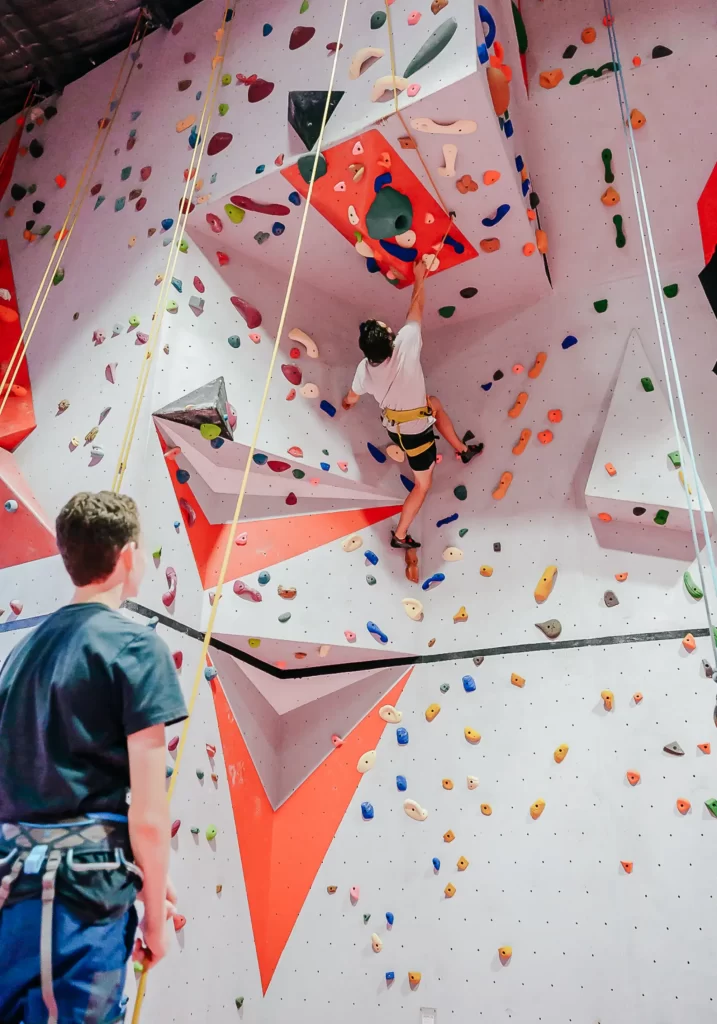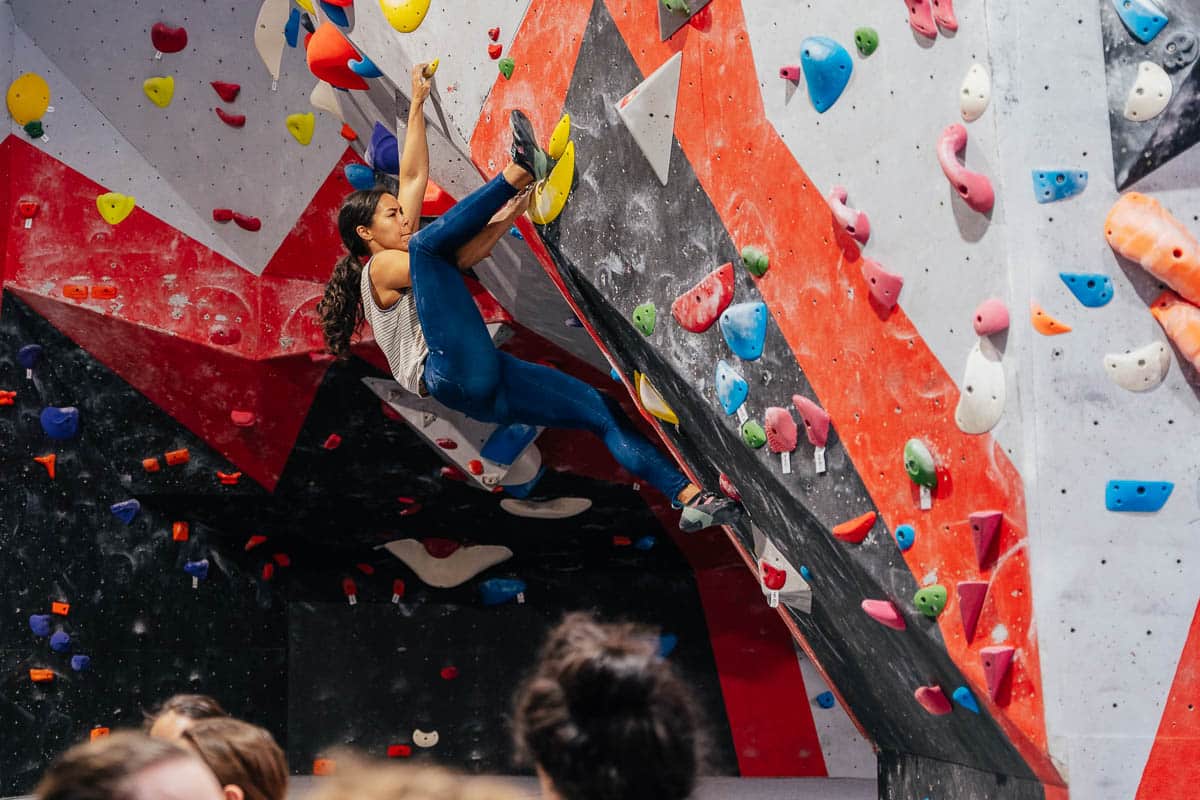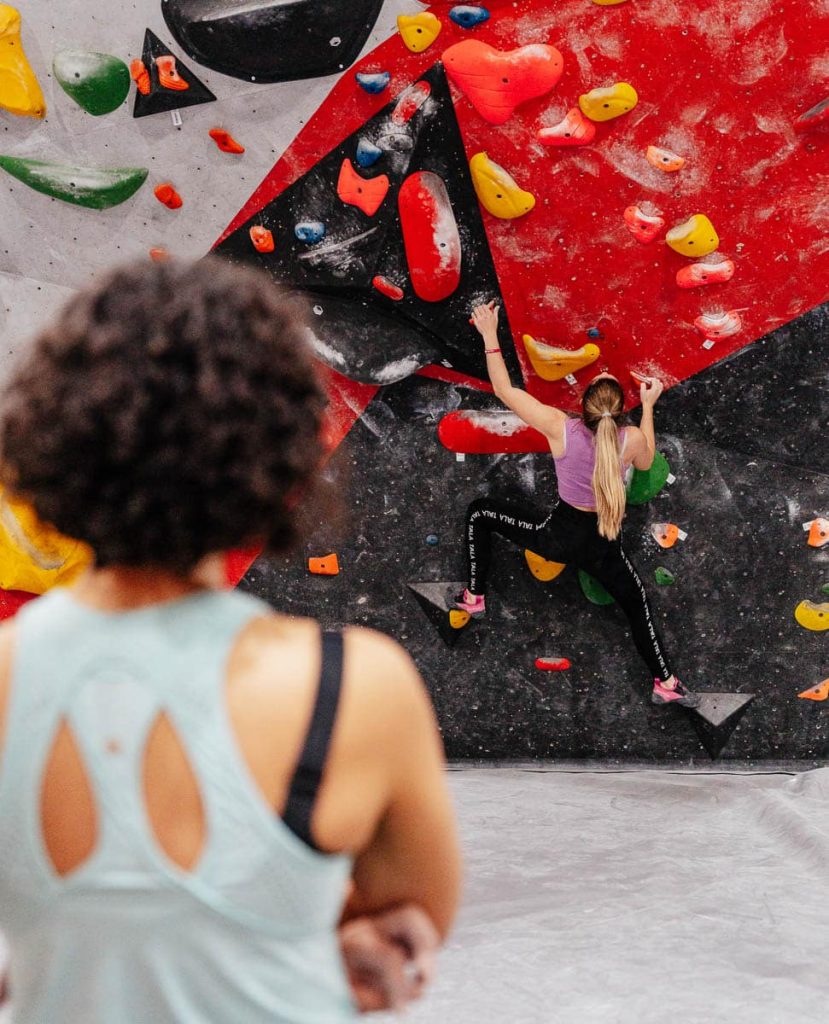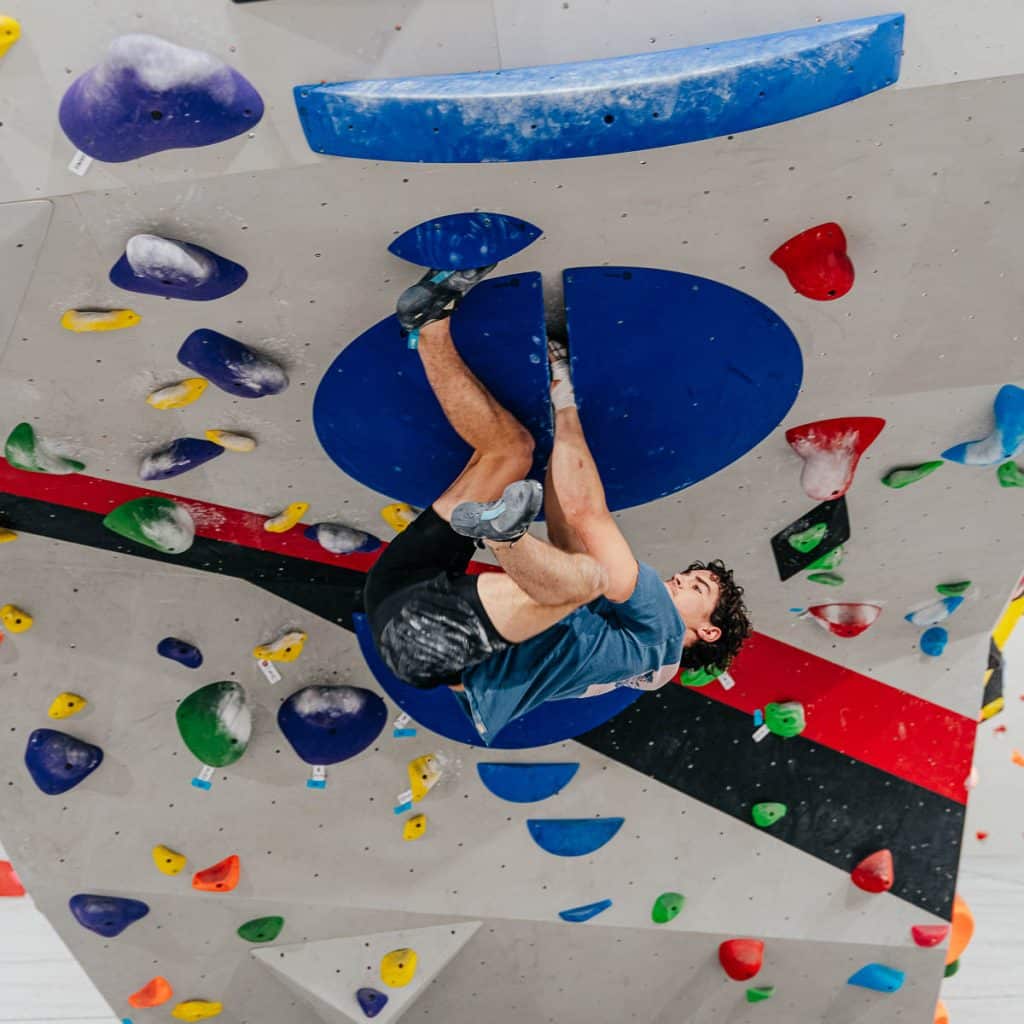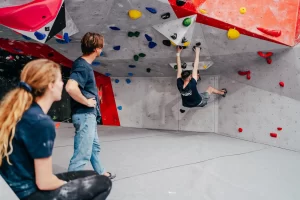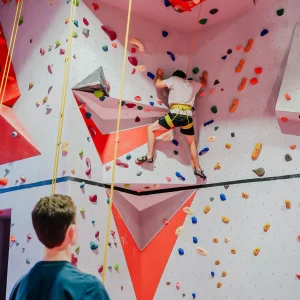What climbing can do for your child? A personal story.
What climbing can do for your child? A personal story.
Stumped with what to write about this month I turned to the boss. He mentioned that there were many kids starting to climb and it seems they are getting stronger and are improving dramatically. This got me thinking about the sport of climbing and what it has done for me and what it potentially could do for so many children, adolescents or even adults. Climbing can be so mystical, there is a certain special something about it. Climbing is an amazing sport though it is very different to many other traditional sports. It is not overly publicised in the media, as a matter of fact, rarely would people even hear about it in Australia unless you went looking. It is not really a team sport, partner yes, but not team and as you all well know, it doesn’t include a ball (unless you’re a solo climber, then you need two ;)). All in all we choose climbing for very different reasons. Some fall into it similar to a job, they then surrender to its addictiveness and way of life. Some from a young age are guided into it via a friend or family member, but why is it we stick around?
I have a personal history with climbing which probably explains why I have stuck around within the sport for so many years. Excluding climbing, I have never stuck to anything, I would chop and change ideas, jobs, interests, etc. Climbing is really the only thing I have stayed with (that and my wife). I see myself as extremely lucky to have found the sport and whilst these days I don’t get out as much as I once did, I am still grateful of the history I have. I’ll give you a brief rundown of some of my history as I believe it may be relevant to some reading this. I was lucky and fell into climbing through an Outdoor Education teacher at college in the ACT. Once I was introduced, I was straight away hooked and slowly it became a huge part in my life. Girlfriends were traded in for climbing shoes and weekends away climbing whilst homework went from Maths to technique and power. Through my childhood years I battled with OCD (Obsessive Compulsive Disorder). I became very good at hiding this from many people including my friends and even family. I also had anxiety and would worry a lot about numerous things which changed over the years. I remember being in year 6 at school saying my goal is to get rid of this OCD/Anxiety before year 7 (high school). Some 18 years later it still haunts me, popping it’s ugly head up to make life a bit of a drama.
I once met with someone about my OCD as it was becoming too much to handle. The person I met with mentioned there was something I could take for it, though it may alter my way of thinking so much so that I may not like to pursue the things I love. He said I may have chosen climbing for a reason. I thought about this for about a second and quickly said no thanks to any medication. At this stage climbing was already such a big part of my life, I was scared at the possibility of losing it and did not want to go back to feeling like I didn’t have a purpose.
After reflecting on my appointment with the doc (or whoever it was) I thought a lot about what keeps me in climbing and why I was so passionate about it. I thought about this repeatedly and to this day still think about it. The psychology of the human mind fascinates me. My anxiety and OCD often fluctuate depending on things which I still don’t even understand. My OCD and Anxiety changed over the years whereby if it was low and I could control it, it would jack up unexpectedly simply to get me to worry about something. It would seem that you can never beat the condition, once you overcome one boundary the illness will build up another just to keep you on the same path. As you can imagine, this can be very frustrating at times, it can make me very angry.
So what the hell does this have to do with climbing you may be politely saying in your head? Climbing was a way out for me. It was my coping mechanism, a way of focusing ALL of my attention on the one thing, so much so that there was no energy left to worry. During this time I am usually Anxiety and OCD free. Not only that, when I went away on the weekend, the majority of the time spent away I did not have anxiety and OCD, it didn’t rule my life! I am so grateful at how it has helped me in my life. I have fond experiences with climbing and the people within the sport, it basically controlled my mental health issues as well as gave me a ripper of a time. What more could one ask for.
Over the years I have asked many people who I am close with about their background in climbing and what lead them to stay in the sport. I found an astonishing number of people who had similar stories to mine where climbing was their coping strategy (some didn’t even realise it until we spoke about the issue). I have heard similar stories in surfing. I think the two sports whilst very different are also very much the same mentally. I find both these sports to be very cathartic.
In summary, I guess I am saying climbing can act as a temporary “way out”, a way of leaving your troubles behind for those who need it. I would say that this is even more apparent outdoors, though I still think it acts the same when training at the gym. Climbing can give you a focus, regardless of whether you may be heading down the wrong path with a group of friends or battling some other issues like me, climbing can give you a positive focus mentally and physically.
I am writing about this issue as I am very passionate about the underlying benefits of Outdoor Recreation. If I can in any way at all help someone out in a similar situation then it has been worth it. At the moment 1 in 5 Australian’s are affected by some sort of mental health disorder (http://www.mindframe-media.info/site/index.cfm?display=83683). If I am to be brutally honest, I believe Outdoor Recreation has far more benefits than any team sport. As a PDHPE teacher, this is a big call. Don’t get me wrong, I love team sports and they certainly have their place. Socially I think team sports are fantastic, though I believe there is much more life skills to be learnt from Outdoor Recreation.
Let me explain more of this. Look at a team sport you played throughout your schooling life. Now have a think about when you stopped playing that sport. There seems to be a big shift in activities from team sports to “lifestyle recreation”. Generally when youth grow up, leave school and start working and having families the majority of people find it hard to set aside certain training days where all members of the team are present. It is hard enough to organise a few people to go away with climbing let alone rely on all members of the team to show up every weekend to play your weekly match. Life simply gets too busy.
Lifestyle recreations are basically any sport or activity where you are in control of when and what you train. Generally you are only reliant on a maximum of one other person. A few examples of these are, obviously climbing and bouldering but also running, gym fitness (pilaties, etc), mountain biking, canoeing, swimming, surfing, the list goes on. As you are in control of your own exercise you are more likely to do it more often, especially if your parents or a close friend are doing it too. I guess it turns into more of a lifestyle than a sport.
Studies also suggests that if you stay involved in an activity for 10 years that you are likely to be locked in for life to that or similar activities. In an age where obesity seems to be taking over this can only be a good thing. Lastly, many Outdoor Recreations teach vital skills to participants by giving them real responsibilities where there are consequences for their actions. Some may say that’s exactly why I don’t want Johnny to go climbing, but truth is maybe that’s exactly what he needs. Many teens get in trouble with the law or at school, these kids get labelled and consequently are never really given a chance to show such responsibilities. How will they ever learn if they aren’t given the chance to prove themselves. Outdoor Recreation gives these kids responsibilities whilst giving them an excellent experience at the same time. They can learn skills for life and potentially be involved in an activity for life.
Most of you reading this are probably already avid climbers, so maybe I am preaching to the converted, though have a think, do you know someone you can introduce climbing to? Who knows, maybe, just maybe, it will change their life in ways you could never imagine.
– Pete Tosen

